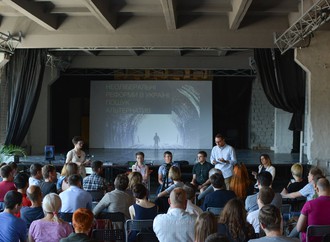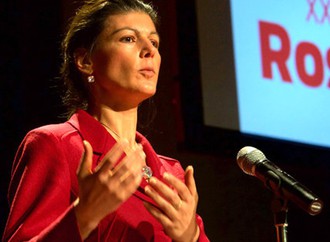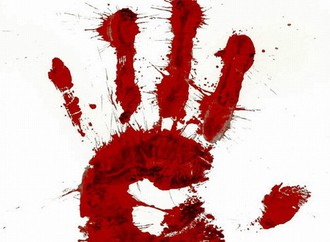With the collapse of the Soviet Union, new independent states, including Ukraine, appeared on the world map. These states went out different paths, having numerous similarities though: market transformations, socio-economic crises of varying intensity, and even military conflicts. As part of the annual “Feuerbach 11” conference, we invite you to discuss how the differences and similarities of the post-Soviet trajectories have affected Ukraine, as well as other societies since 1991.
“Feuerbach 11” is an annual conference, launched by the “Commons” journal of social criticism in 2019; it brings together scholars and activists to share their knowledge and experience. We strive to break a new ground of Ukrainian public debate and bridge the gap between social science and the practice of progressive movements
The conference agenda includes the work of the following sections:
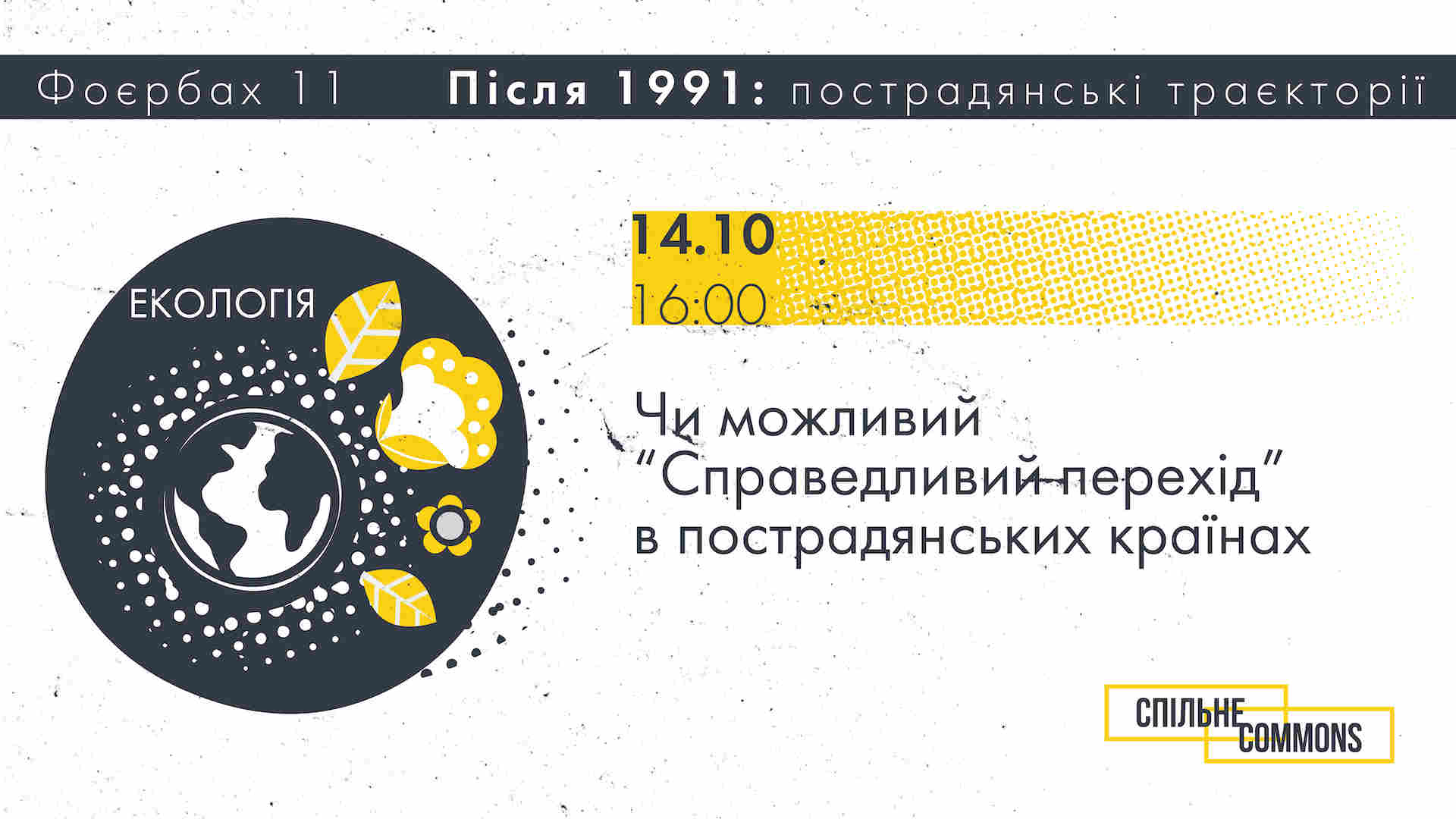
Is “just transition” in post-Soviet countries achievable?
The event will discuss the feasibility of a “just transition” by applying government regulation of key economic sectors in the post-Soviet space, where a market model with a high level of deregulation is advocated. It will analyze how other countries have handled it and how their experience can be useful for Ukraine.
► Implementation of market mechanisms in Ukraine’s energy sector
Maryna Larina, researcher on climate and energy;
► Coal sector and mine closure issue: Ukraine's climate commitments and prospects for a “just transition”
Kostiantyn Krynytsky, Ecoaction NGO, Head of the Energy Department, expert in the coal industry and just transition of mining regions;
► Kyrgyzstan on the path to Just transition: green vector and natural resources
Gulzhan Makhmudova, Environmental Sustainability Expert – Leading specialist at Ministry of Energy and Industry of Kyrgyz Republic, member of “Just Transformation and Fossil Fuels Elimination” group;
► Transformation of coal regions – German experience
Steffen Kühne, German activist, Deputy Director of the Academy of Political Education at Rosa-Luxemburg-Stiftung;
► Moderator: Anatasia Ryabchuk, social scientist, Commons journal co-editor.
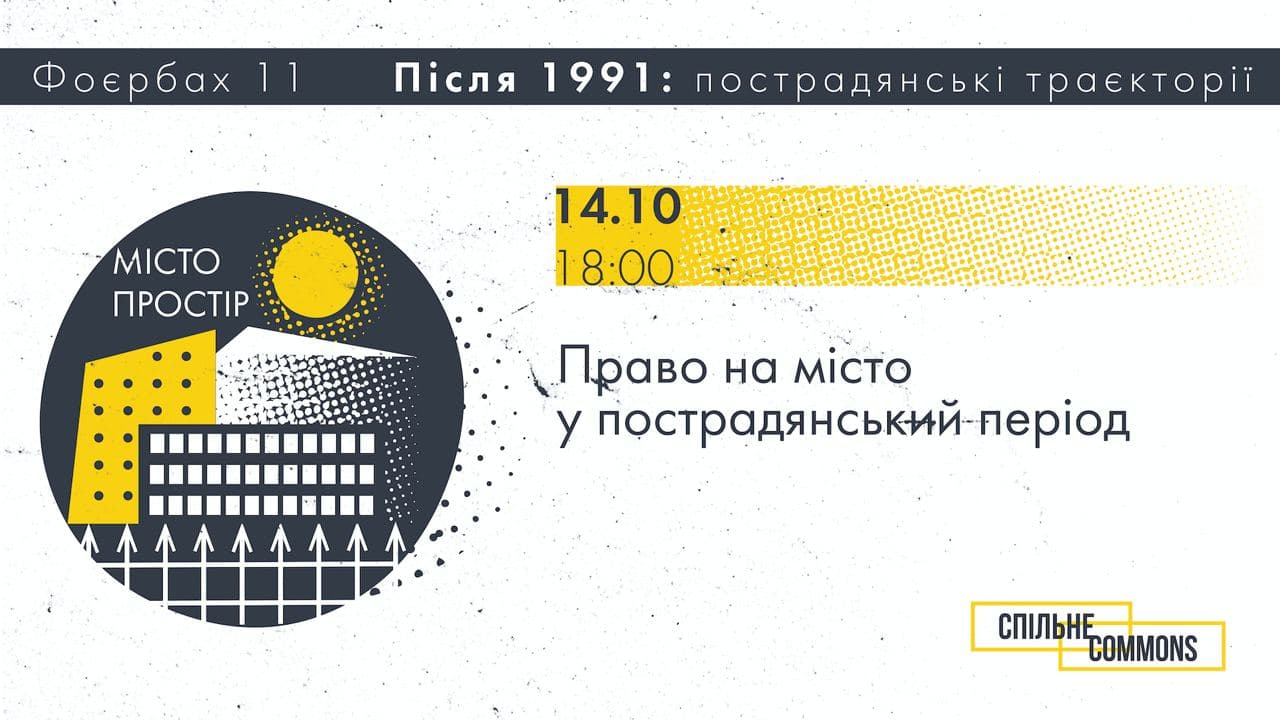
Right to the city in a post-Soviet period
Over the past 30 years, capitalist development has deepened and transformed spatial inequalities, which the Soviet regime had been shaping for decades. Several cities became oases of accumulation, while the rest of the post-Soviet regions failed to adapt to the conditions of the peripheral capitalism and gain a competitive edge in fast-growing global markets. The event will discuss the development of Ukrainian cities since the 1990s. It will analyze how urban planning affects citizen’s daily life, which conflicts erupt and how they end. It will consider possible alternatives and how education can enhance their development.
Speech topics and speakers:
► Urban planning in Ukraine after 1991 – development turn and business urbanism
Oleksandr Anisimov, urban planning researcher, master of urban studies, project manager of “After Socialist Modernism” and chairman of “Understanding the Soviet Division” NGO;
► Urban competition strategies of the global market
Katalin Gennburg, German researcher and left politician, Member of the Berlin Parliament;
► Urban social movements
Iryna Yuzyk, urban activist and journalist;
► Educational programs on urban planning and regional development
Svitlana Shlipchenko, researcher, initiator and developer of “Urbanism and Spatial Planning” master’s program, Center for Urban Studies head.
► Moderator: Aliona Lyasheva, social scientist, housing policies researcher, Commons journal co-editor.
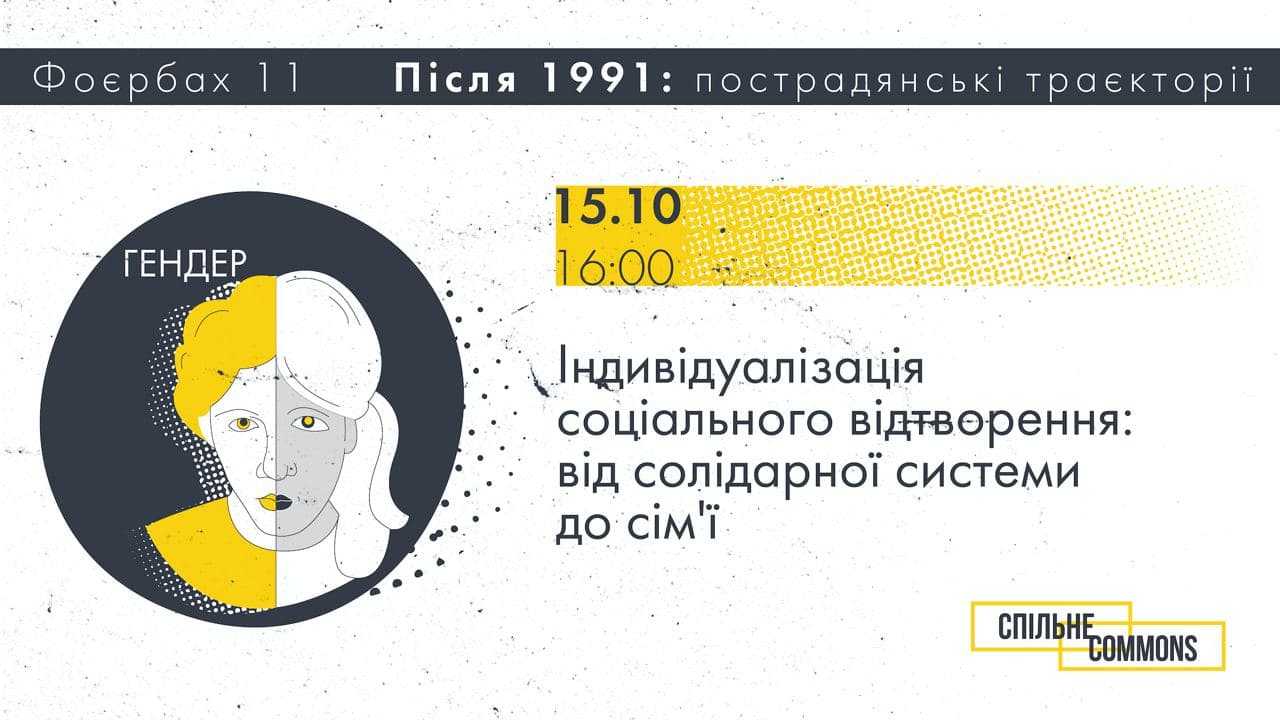
Individualization of the social reproduction: from mutually supportive funding systems to family
Market transformations and further neoliberal “optimization” measures significantly reduced the maintenance of the sectors, responsible for social reproduction: preschools, medical facilities, social work etc. “Optimization” also affected social support – pensions, single mothers’ and caregivers’ allowance. Due to these changes, the issue of social reproduction has become a challenge of each individual family. And in real terms – as unpaid and low-paid work – became an issue for women at different levels of the care work.
At the meeting, we will consider and discuss how various “optimization” reforms and market transformations in the spheres of social reproduction have influenced the situation of women in Ukraine.
Speech topics and speakers:
► The logic of the “social services” reform, its consequences in the context of decentralization, and influence on the sphere of social work in Ukraine
Natalia Lomonosova, Cedos center analyst, co-editor of Political Critique, Ph. D. student, Social Science Department, Kyiv-Mohyla Academy;
► Why “money follows a child” model cannot radically change the conditions of stay and working conditions in Ukrainian kindergartens; workers’ role in attempts to reform the preschool education system and how does ideology influence these processes?
Oksana Dutchak, Ph.D. in Social Sciences, Researcher at the Center for Social and Labor Studies;
► Single mothers in the conditions of individualization of social reproduction, state policy on support of such families and what are the strategies for the struggle for survival?
Olena Tkalich, journalist, editor of “Social portal” media, activist of the “Social Movement” NGO, co-author of “Who to take care?” study;
► How public sector care reforms affect the situation of Georgia’s women workers?
Sofia Japaridze, leader of the Solidarity Network Workers Center in Georgia, author of the “Reimagining Soviet Georgia” podcast, analyst.
► Moderator: Nadiya Chushak, anthropologist.
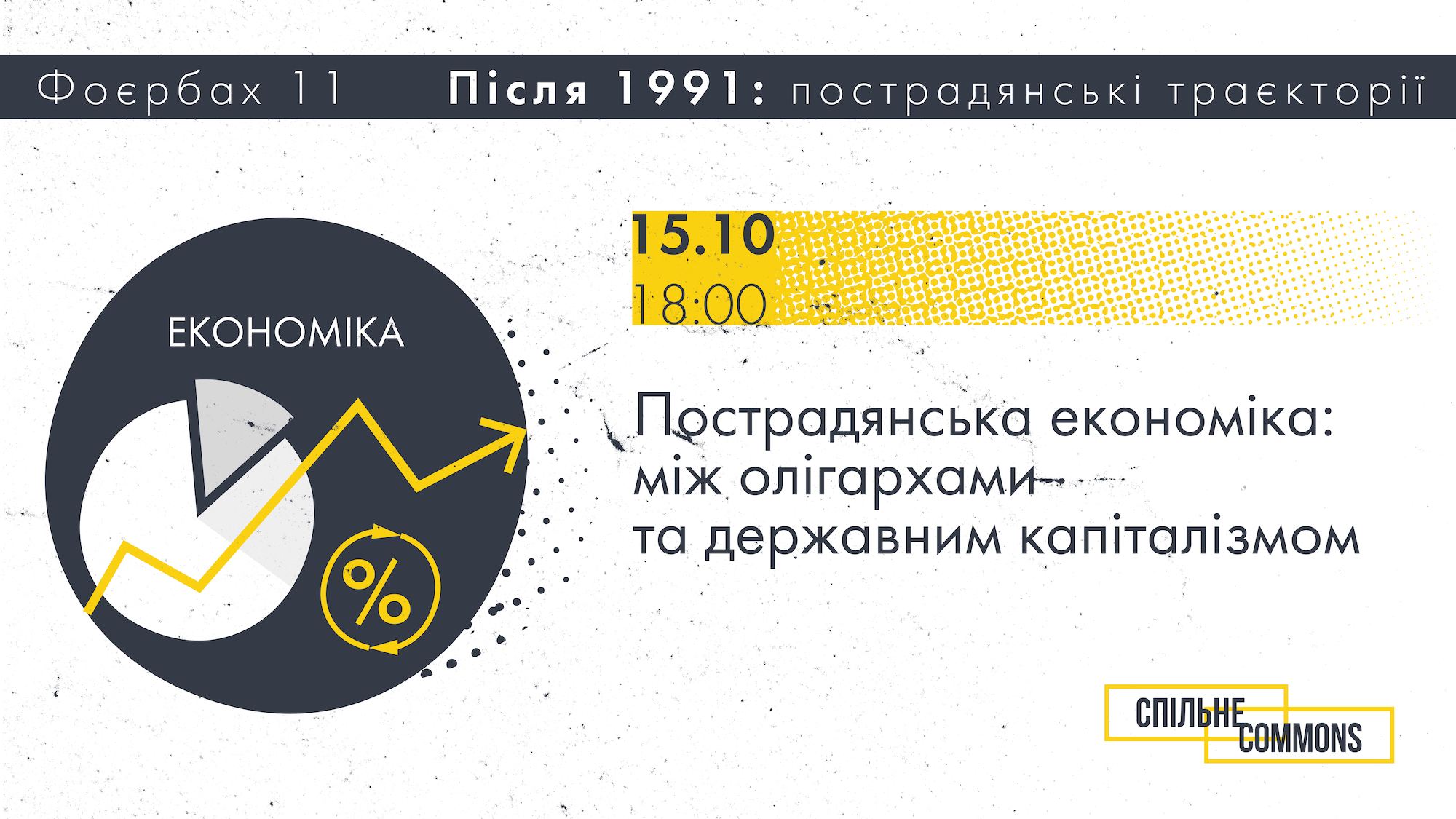
Post-soviet economy: between oligarchs and state capitalism
30 years ago, crisis of the Soviet system ended with the declaration of independent republics and a bound for the market-oriented economy. Commodity gap and the rigorous bureaucracy of the state-planned economy had to be replaced by efficient market. But fierce market competition stipulated retaining the social standards. Neoliberal reforms entailed the transition to market prices and deregulation of all spheres of life. It resulted into the elimination of most science-consuming industries and state’s integration into the world market as a raw materials supplier. And even those enterprises, which have succeeded in surviving, constantly evaded taxes. Consequently, the states have faced budget deficits and the need to cover them with loans from foreign creditors under bondage conditions.
During the event, we will consider possible alternatives to such “shock therapy.” We will discuss how different post-Soviet countries have built new economic systems; what is the difference between the vectors of Ukraine with its oligarchic model, the authoritarian rule of Russia or Belarus with its state capitalism. We will talk about the future of these economies and the possibility of the new integration processes.
Speech topics and speakers:
► Consequences of the collapse of the Soviet bloc for the newly formed states: economic component
Felix Jaitner, political scientist, researcher of post-Soviet transformations;
► Between oligarchs and authoritarianism: Russia’s political economy after 1991
Ilya Matveev, Ph.D. in Political Science, Associate Professor of Russian Presidential Academy of National Economy and Public Administration;
► Still against mainstream? Key features of Belarus' economic and social development since mid-1990s
Vyacheslav Yaroshevych, researcher, Ph.D. in Social Sciences;
► Developmental challenges of Ukrainian capitalism: between neocolonialism and multivectorness
Yulia Yurchenko, Ph.D., Deputy Head of the Critical Political Economy Research Network (CPERN) at the European Sociological Association (ESA);
► Social consequences of neoliberal reforms in Ukraine
Vitalina Butkalyuk, Ph.D. in Social Science, Research Fellow at the Institute of Sociology of the National Academy of Sciences of Ukraine;
► Moderator: Oleksandr Kravchuk, economist, Commons journal co-editor.
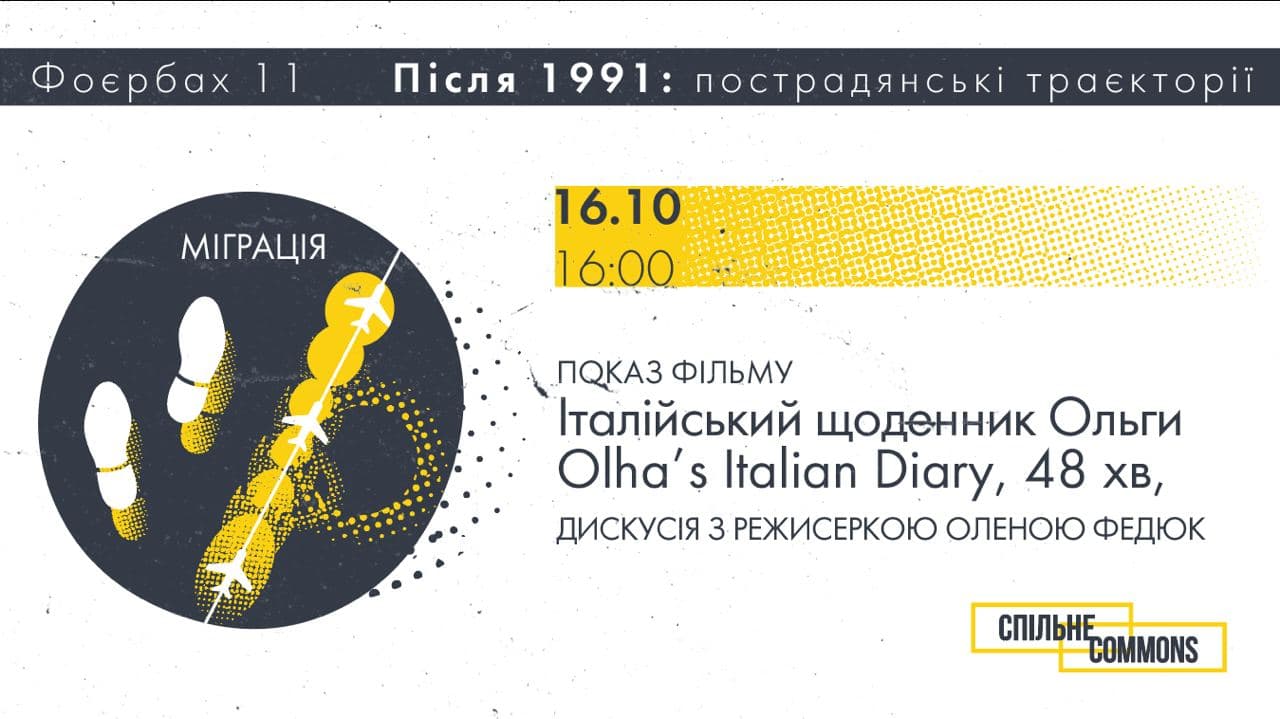
Screening of the film and discussion with the director Olena Fediuk
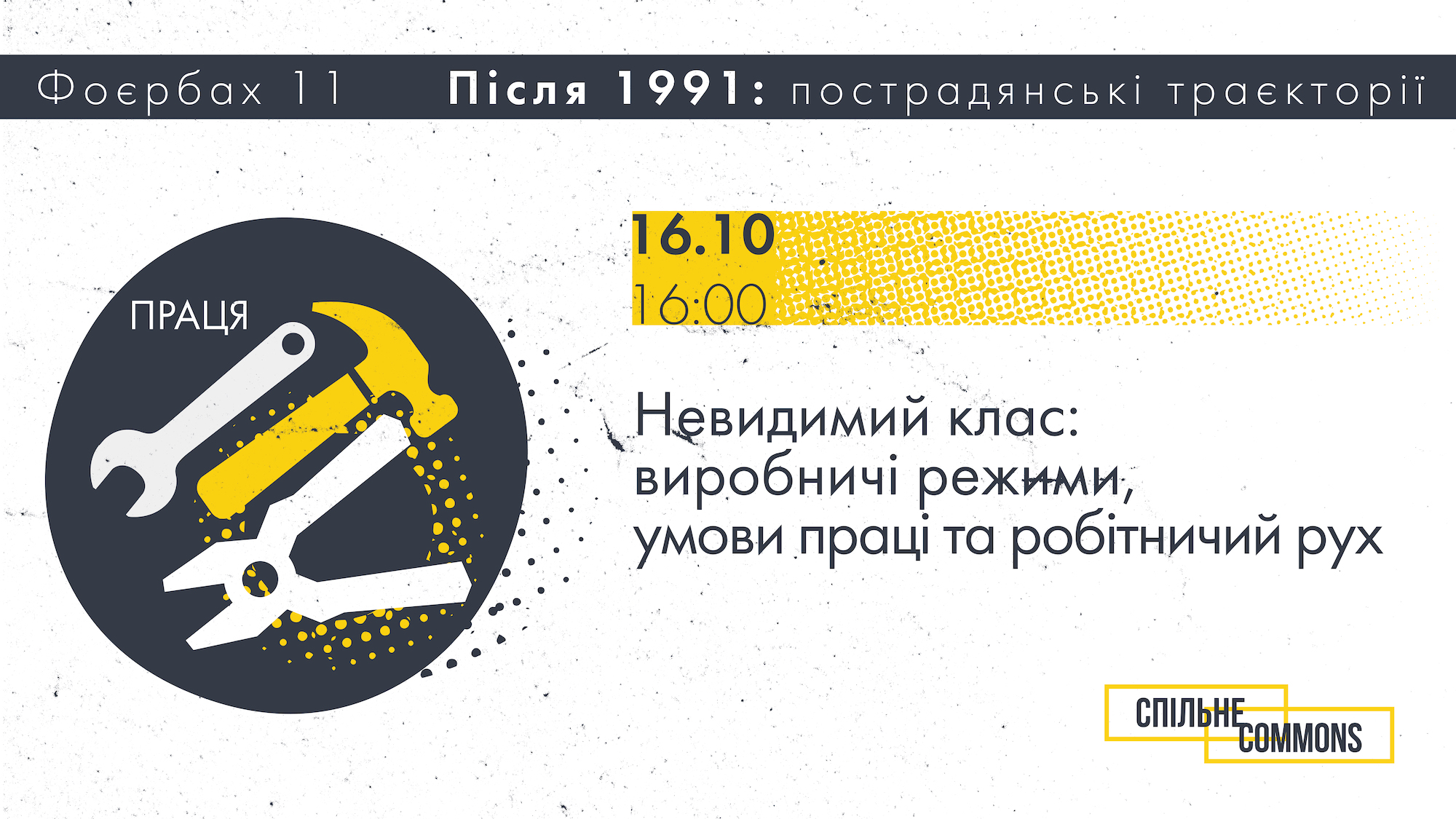
The Invisible Class: Production Regimes, Working Conditions, and Labour Movement
Thirty years ago, the working class was high up in the symbolic hierarchy of the day, but in modern Ukraine, workers are often perceived as “fallen sparrows of globalization,” unable to retrofit themselves and have successful lives. Such a transformation is a common trend in the other post-Soviet countries. On the flip side, workers are here to stay, and despite their low level of material well-being and political standing, they still form a large stratum of Ukrainian society and produce surplus products in industrial enterprises, a product that is further distributed unequally among all other social groups.
We will examine the post-Soviet transformations of labor in Ukraine, as well as in other countries – from a class-for-itself and as a class-in-itself perspectives:
- Labor policy outside the plant: social movements, parties, elections through the class perspective;
- Workplace policy: working conditions, modes of domination, production hierarchies.
Speech topics and speakers:
► “Task orientation” and “coping” with the worn-out equipment: production process in the post-Soviet space
Olha Pinchuk, Ph.D. student, History Department, HSE University, St. Petersburg: researcher, PS-Lab member;
► Post-post-Soviet factory regime: what the legitimacy of the administration and the owner of Ukrainian industrial enterprises rests upon
Denys Horbach, social researcher, Ph.D. student at the Paris Institute of Political Studies;
► Bridging the gap: class and regional divisions in Russian protests
Stephen Crowley, professor of the Department of Politics at Oberlin College (Ohio, USA), researcher of the post-Soviet working class and the political economy of the post-socialist transformation;
► Trade union activism in a non-traditional environment: educators as workers
David Mandel, a researcher of trade union movements in post-Soviet countries;
► Moderator: Serhiy Movchan, co-editor of Political Critique.
The conference is held with the support of Rosa Luxemburg Stiftung in Ukraine from the resources of the Ministry of Economic Cooperation and Development of Germany.
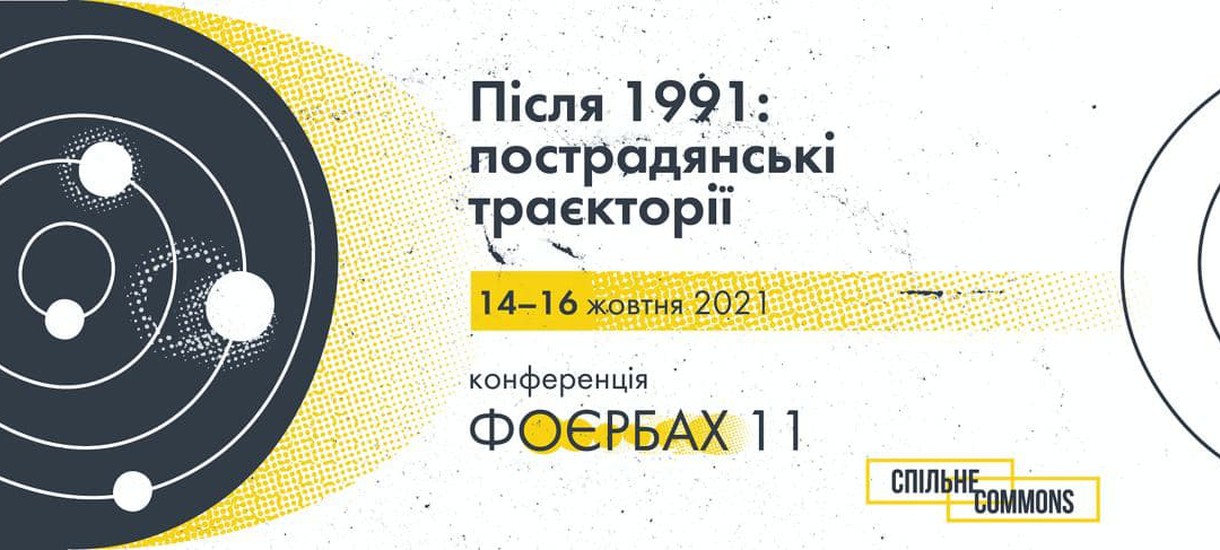

![Reconstruction and Justice in Post-War Ukraine [video]](/file/thumbnail/%D0%BA%D0%BE%D0%BD%D1%84_category.png)
